Text
FPR P300
FPR P300 portable charging box
FPR P300
Portable Energy Station P300
Empower your adventures with the FPR P300 Mobile Energy Hub, a versatile and rugged solution that thrives in any environment. With an IP52 rating, this power station 300w type safeguards against dust and dripping water, delivering reliable performance in temperatures from -30°C to 40°C, even in extreme cold conditions with the insulation cover. Its compact and lightweight design ensures effortless portability, suitable for all users. The fanless operation of portable power station 300w guarantees a peaceful environment, while its multiple charging options and robust six series aluminum alloy construction make it the ultimate energy companion for your on-the-go lifestyle. Experience freedom and reliability with the FPR P300 power bank 300 watt type- your gateway to endless possibilities.
Highlights of FPR P300 Portable Compact Power Station
portable power station 230v
portable power station 200w
portable power station 300w
compact power station
powerstation 300 watt
portable power station 220v ac outlet
IP52
Ingress of dust is not entirely prevented, but it must not enter in sufficient quantity to interfere with the satisfactory operation of the power station 300w equipment; complete protection against contact. Vertically dripping water shall have no harmful effect when the enclosure is tilted at an angle up to 15° from its normal position.
Gallery of FPR P300 portable power station 240v
battery power station p300 fpr
battery power station portable
outdoor power station display
Further Information on FPR P300 Portable Power Station
Specification
Capacity
343Wh, 92.8Ah
Output Power
350W
OUTPUT/DISCHARGE PORTS AC
220V 50Hz / 110V 60Hz / 50Hz
DC
12V / 6A Max
USB-A
5V / 2.4A (x3)
USB-C
PD3.0 5-20V 100W (Max)
Type-C
PD 100W
Car Charging Port
12V/12A Max, Supports car start
LED
5W, 10W, SOS, Quick flashing
INPUT/CHARGE PORTS AC
100V-240V 60/50Hz 2.5A Max
DC
20V/9A 65W
PV (Solar Panel)
17-24V/6A
Car
12.6-15V/100W
Solar Panel
120W Max, 3 Hours
OTHER FEATURES
Working Temp: -30°C to 40°C
Product size
175×140×118(mm)
Package size
295×270×218(mm)
Net weight
3.5(Kg)
Single gross weight
4.5(Kg)
FAQ
Question
Answer
Why FPR P series doesn't have a fan?
High-frequency resonance techniques were applied in the inverters of the FPR P series to boost efficiency to 95% while reducing heat generation to just 5%. The thermally conductive silicone casing efficiently dissipates excess heat into the surrounding air, eliminating the need for ventilation openings and fan-based cooling. This enhances the product's sealing integrity to meet the IP53 standard, safeguarding internal components from dust and moisture, significantly increasing longevity and safety, and reducing noise to 0 decibels.
Why plastic material is not chosen for the FPR P series casing?
Plastic's heat dissipation capability is less than one-third of that of alloy, necessitating the addition of ventilation holes and fans for heat dissipation. This can lead to issues like water vapor erosion, reducing product lifespan and safety.
High-power power supplies generate electromagnetic radiation, and plastic cannot shield this radiation, which can be harmful to human health. Professional power supplies, instruments, and meters consistently use alloy shells for their superior shielding properties.
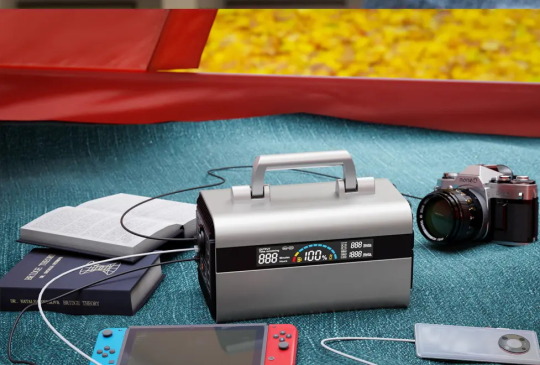
0 notes
Text
FPR P1000
FPR P1000
Portable Energy Station P1000
With the robust and adaptable FPR P1000 portable powerstation 1200 watt, you can tackle any adventure in any setting. Its IP52 classification protects it from dust and dripping water, and with the insulating cover on, the power bank 1000w can function dependably in temperatures ranging from -30°C to 40°C. Its lightweight and small size guarantees easy transportation and makes it appropriate for all users. Its strong six-series aluminum alloy structure and several charging choices make it the ideal energy partner for your mobile lifestyle, while its fanless operation ensures a quiet environment. With the FPR P 1000 power station 1200w, you may enjoy dependability and independence as well as unlimited options.
Highlights of FPR P1000 Portable powerstation 1000 watt lifepo4
power station 300w
portable power station 200w
compact power station
portable power station 5000w
powerstation 3000 wh
portable power station 220v ac outlet
IP52
Ingress of dust is not entirely prevented, but the portable power station 1500 watts type must not enter in sufficient quantity to interfere with the satisfactory operation of the equipment; complete protection against contact. Vertically dripping water shall have no harmful effect when the enclosure is tilted at an angle up to 15° from its normal position.
Gallery of FPR P1000 Portable powerstation 5 kwh
good portable power station
portable charging unit
portable energy station
camping charger station
Further Information on FPR P1000 Portable Power Station
Specification
Capacity
1016Wh,278.4Ah;1121Wh,307.2Ah
Output Power
1000W
OUTPUT/DISCHARGE PORTS AC
220V 50Hz / 110V 60Hz / 50Hz
DC
12V / 6A Max
USB-A
5V / 2.4A (x3)
USB-C
PD3.0 5-20V 100W (Max)
Type-C
PD 100W
Car Charging Port
12V/12A Max, Supports car start
LED
5W, 10W, SOS, Quick flashing
INPUT/CHARGE PORTS AC
100V-240V 60/50Hz 2.5A Max
DC
20V/9A 65W
PV (Solar Panel)
17-24V/6A
Car
12.6-15V/100W
Solar Panel
160W Max, 3 Hours
OTHER FEATURES
Working Temp: -30°C to 40°C
Product size
294×175×118(mm)
Package size
395×275×268(mm)
Net weight
8(Kg)
Single gross weight
10.4(Kg)
FAQ
Question
Answer
Why FPR P series doesn't have a fan?
High-frequency resonance techniques were applied in the inverters of the FPR P series to boost efficiency to 95% while reducing heat generation to just 5%. The thermally conductive silicone casing efficiently dissipates excess heat into the surrounding air, eliminating the need for ventilation openings and fan-based cooling. This enhances the product's sealing integrity to meet the IP53 standard, safeguarding internal components from dust and moisture, significantly increasing longevity and safety, and reducing noise to 0 decibels.
Why plastic material is not chosen for the FPR P series casing?
1. Plastic's heat dissipation capability is less than one-third of that of alloy, necessitating the addition of ventilation holes and fans for heat dissipation. This can lead to issues like water vapor erosion, reducing product lifespan and safety. 2. High-power power supplies generate electromagnetic radiation, and plastic cannot shield this radiation, which can be harmful to human health. Professional power supplies, instruments, and meters consistently use alloy shells for their superior shielding properties.

0 notes
Text
FPR 10P384S LFP280Ah
FPR 10P384S LFP280Ah
20ft BESS Container
FPR is proud to introduce BESS container, a revolutionary product that is transforming the way we store and manage energy. Our BESS container is a self-contained unit that houses lithium storage batteries for solar power, a battery management system (BMS), an energy management system (EMS), and other components required to store and manage electrical energy. This makes it a versatile and scalable solution for a wide range of applications.
Our BESS container is designed for easy transportation and deployment, making it ideal for both temporary and permanent installations. It can be easily stacked and combined to increase overall storage capacity, making it suitable for large-scale projects. Safety is paramount at FPR, and our lithium ion battery storage container is equipped with advanced safety features, including fire suppression systems and comprehensive monitoring capabilities. This ensures the long-term reliability and protection of your energy storage system.
We have optimized our BESS container to provide exceptional value for money. Its high energy density and long lifespan translate into lower storage costs per unit of energy stored. This makes our lithium battery for energy storage container an attractive investment for businesses and organizations seeking sustainable energy solutions.
Highlights of Lithium Ion BESS Container FPR 10P384S
large home battery storage system safety & quality
solar panel lithium battery storage system capability & capacity
solar power home battery storage system reliability & longevity
Safety & Quality
LFP Cells (48/52 per pack) with intelligent BMS;
UL 1973/ 9540A/ 9540 certified;
Advanced fire suppression system
Gallery of lion sanctuary lithium energy storage system Container FPR 10P384S
battery charger module 12v
Further Information on BESS Container FPR 10P384S.
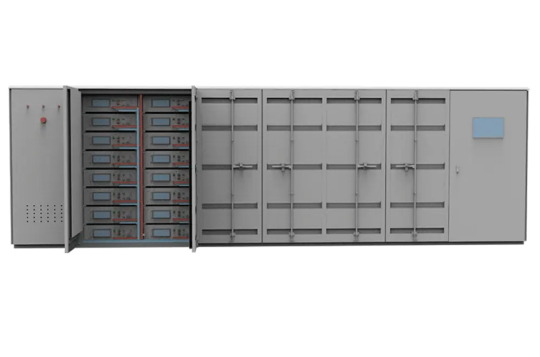
0 notes
Text
FPR 48100S
FPR 48100S
Multi-application LFP Battery Pack
The FPR48100S from 48v lithium ion battery manufacturer FPR is a 3U-height 19-inch integrated 48 volt lithium ion battery pack for phosphate communication.The battery lifepo4 48v pack's attributes include its compact size, lightweight construction, easy battery management and self-maintenance, user-friendly operation, energy efficiency, and environmental friendliness.
The 48 volt lifepo4 battery pack is widely used in a variety of industries, including home energy storage, photovoltaic energy storage base stations, indoor and outdoor base stations, and others. Micro base stations, macro base stations, base stations for photovoltaic energy storage, micro grid energy storage, etc. are some examples of these uses.
Highlights of FPR 48100S 48 Volt Lithium Ion Battery for Sale
48 volt lithium ion battery pack
48v li ion battery
48 volt lifepo4 battery
48v lithium ion battery
48v lithium iron phosphate battery
lithium ion battery pack 48v
CCS with FCC
The 48 volt lithium iron phosphate battery with maximum flexibility inpositioningmating connectorsand higher tolerance in theassembly of the boards.
Gallery of 48 Volt Lifepo4 Battery Pack FPR 48100S
battery cell pack module
Further Informatin on Battery Module Pack FPR 48100S.
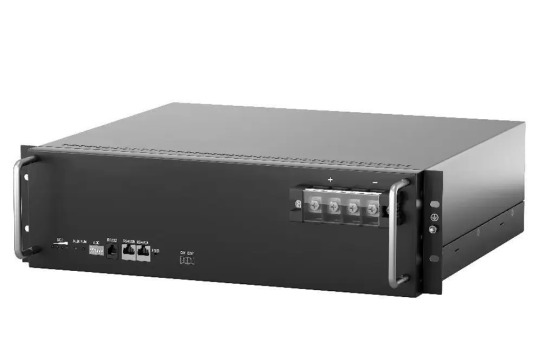
0 notes
Text
Battery Module Pack
Battery Module Pack
Multi-application LFP battery module packs offer a compelling value proposition with their sleek and compact design, user-friendly operation, and robust performance. These versatile power solutions find applications in lucrative markets such as home energy storage, photovoltaic energy storage base stations, and indoor/outdoor base stations. These battery cell pack module pack solutions ensure uninterrupted power supply, enhancing operational efficiency and reducing downtime in critical sectors. With a focus on sustainability and cost-effectiveness, these battery cell pack module align perfectly with the growing demand for eco-friendly and economically viable energy solutions across diverse industries.
Advantages of FPR NEW ENERGY Battery Module Pack
High-performance BMS
Battery cell module pack with advanced SOC algorithms to make capacity calculations more accurate.
Real-time Management
Real-time control of cell module pack for optimal performance and safety.
LFP Technology for Enhanced Safety and Durability
LFP cell module pack tech boosts safety and longevity, providing a reliable power source for diverse applications.
FPR 48100S
The FPR48100S is a compact and lightweight 48v lithium battery pack for phosphate communication. This battery cell module pack is easy to manage and maintain, user-friendly, energy-efficient, and environmentally friendly. The 48v 100ah lithium ion battery is used in various industries such as home energy storage, photovoltaic energy storage, and base stations for different purposes.
The Use of Battery Modules in Grid-Scale Energy Storage Systems
Grid-scale energy storage systems play a pivotal role in modernizing and stabilizing power grids, enabling efficient integration of renewable energy sources. Among the diverse technologies employed in these systems, battery cell modules stand out as crucial components, offering flexibility, rapid response times, and scalability. These modular units are instrumental in addressing the intermittent nature of renewable energy generation and contribute to grid reliability by storing excess energy during periods of high production for use during peak demand or low production periods.
Battery pack modules within grid scale energy storage systems typically consist of interconnected cells, commonly 48v 100ah lithium ion battery due to its high energy density and longevity. Battery module cells are organized into modules, which, in turn, are assembled into larger battery packs. This modular design allows for easier maintenance, replacement, and scalability, ensuring adaptability to the evolving energy landscape
The primary function of battery pack modules in grid-scale energy storage is twofold: charging and discharging. During periods of surplus renewable energy production, such as sunny days with intense solar irradiance or windy periods, the excess electricity is stored in the battery modules. Conversely, during times of high energy demand or when renewable sources are not generating electricity, the stored energy is discharged into the grid to meet the power requirements. This dynamic charging and discharging capability helps balance the grid, smooth out fluctuations, and enhance overall stability.
Moreover, the use of battery cell modules contributes to the integration of energy storage with advanced grid management systems. Intelligent control algorithms monitor grid conditions in real-time, allowing for precise and swift adjustments to the flow of electricity. This capability is especially crucial for supporting grid reliability, managing peak demand, and providing ancillary services, such as frequency regulation and voltage control.
As advancements in battery technology continue to unfold, including innovations in materials and chemistries, the efficiency, affordability, and environmental sustainability of grid-scale energy storage systems are expected to further improve. Battery modules, with their modular design and technological prowess, are poised to remain key players in ushering in a more resilient, sustainable, and responsive energy infrastructure for the future.
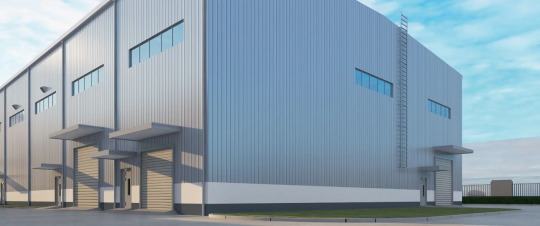
0 notes
Text
Stationary Battery Energy Storage Systems
FPR New Energy takes pride in unveiling the BESS container, a product shaping the landscape of stationary energy storage. Our BESS stationary battery energy storage systems container of modular design, LFP batteries, an intelligient battery management system (BMS), an energy management system (EMS) make it an efficient electric power battery storage. It is scalable and customized. Factory pre-assembly reduces installation and commissioning costs. The energy storage system container supports parallel connection and capacity expansion is easy, catering to large-scale projects. Safety remains paramount at FPR, with the BESS container featuring advanced safety like fire suppression systems and comprehensive monitoring for enduring reliability.
Advantages of FPR NEW ENERGY Stationary Energy Storage Systems
Safe
Multi-level stationary storage battery protection
Liquid cooling technology
Simple & Fast
Container BESS Factory pre-assembly reduces costs of installation and commissioning of commercial battery storage
Convenient operation & flexible maintenance
Scalable & Customized
Modular design of stationary battery systems
Parallel connection and easy capacity expansion
Customized solutions
Smart
Digital technology, remote collaboration and intelligent monitoring
Active cell balancing of stationary energy storage systems.
FPR 10P384S LFP280Ah
FPR introduces the BESS container, revolutionizing stationary battery storage with a self-contained unit housing batteries, BMS, and EMS. Versatile, scalable, and prioritizing safety, this container energy storage system offers cost-effective, sustainable energy solutions for diverse applications.
Stationary Energy Storage Systems for Renewable Energy
In the relentless pursuit of sustainable and eco-friendly energy solutions, the development of stationary storage systems has emerged as a crucial linchpin in the integration of renewable resources into our power grids. Renewable energy sources, such as solar and wind, are inherently intermittent, producing electricity when the sun is shining or the wind is blowing. This intermittent nature poses a significant challenge to maintaining a stable and reliable power supply, especially when demand does not align with the sporadic nature of these resources.
Enter the electrical energy storage systems—the technological marvel designed to bridge the gap between energy production and consumption, fostering a harmonious relationship between renewable sources and the grid. These BESS wholesale systems store excess energy generated during periods of high renewable output and release it when demand surpasses immediate supply. The result is a more resilient and flexible energy infrastructure capable of adapting to the variable nature of renewables.
One of the most promising technologies in the realm of energy storage is battery storage. Lithium-ion batteries, in particular, have undergone remarkable advancements, becoming the cornerstone of many grid scale energy storage systems and projects. These energy storage devices batteries offer high energy density, rapid response times, and an extended cycle life, making them ideal candidates for efficiently storing and releasing renewable energy.
The benefits of implementing energy storage systems for renewable energy are multifaceted. First and foremost, these community energy storage systems contribute to grid stability by mitigating the intermittency of renewable sources, thus ensuring a consistent power supply. Furthermore, these electrical energy storage systems empower communities to harness and utilize locally generated renewable energy, fostering energy independence and reducing reliance on centralized power plants.
As technology continues to evolve, the future of stationary energy storage systems holds even greater promise. Innovations in materials science, artificial intelligence, and grid electricity storage management are poised to enhance the efficiency and affordability of these grid scale energy storage systems, making them increasingly integral to the global transition toward a more sustainable energy landscape. In the grand tapestry of renewable energy integration, grid energy storage systems emerge as the threads that weave resilience, reliability, and sustainability into the fabric of our power grids.
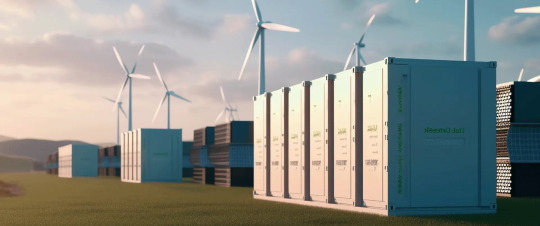
0 notes
Text
Products
Battery storage energy system from FPR
FPR leads in energy storage innovation, offering cutting-edge solutions. Proudly showcasing our unique energy storage container design expertise and our exceptional research team's capabilities. Tailored solutions, safety, and sustainability define our design, while our researchers drive technology and sustainability forward.
Why Do We Choose BESS Products from FPR New Energy?
Our research and development team boasts 11 years of industry experience and consists of 300 seasoned R & D engineers. They possess not only extensive technical expertise but also remarkable innovation capabilities. This team is dedicated to enhancing energy efficiency, pushing the boundaries of new energy products through innovative engineering technologies, intelligent systems, and high-efficiency solutions.
bess battery production line
FPR aims to provide renewable energy while emphasizing the enhancement of energy efficiency. Our new energy products are designed to be more efficient and reliable energy solutions, catering to the ever-growing energy demands of today. By optimizing energy utilization, we assist clients in reducing energy costs, minimizing waste, and achieving greater returns both economically and environmentally.
Advantages of bess battery system
Sustainability and Environmental Friendliness: Energy storage companies are committed to providing eco-friendly and sustainable energy solutions. This sustainability makes them highly regarded, especially in the face of increasingly stringent environmental regulations, helping to reduce carbon footprints and dependence on finite natural resources.
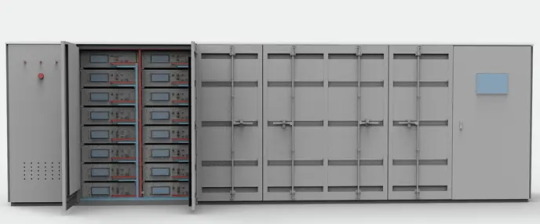
1 note
·
View note